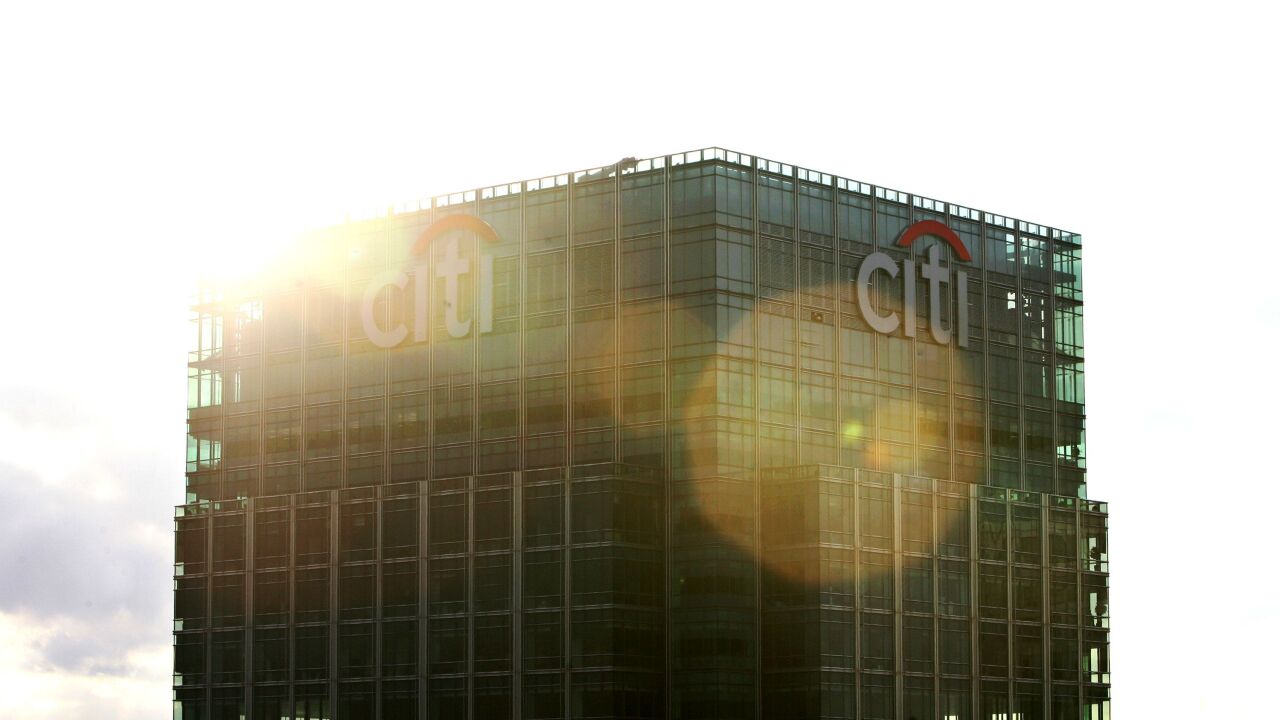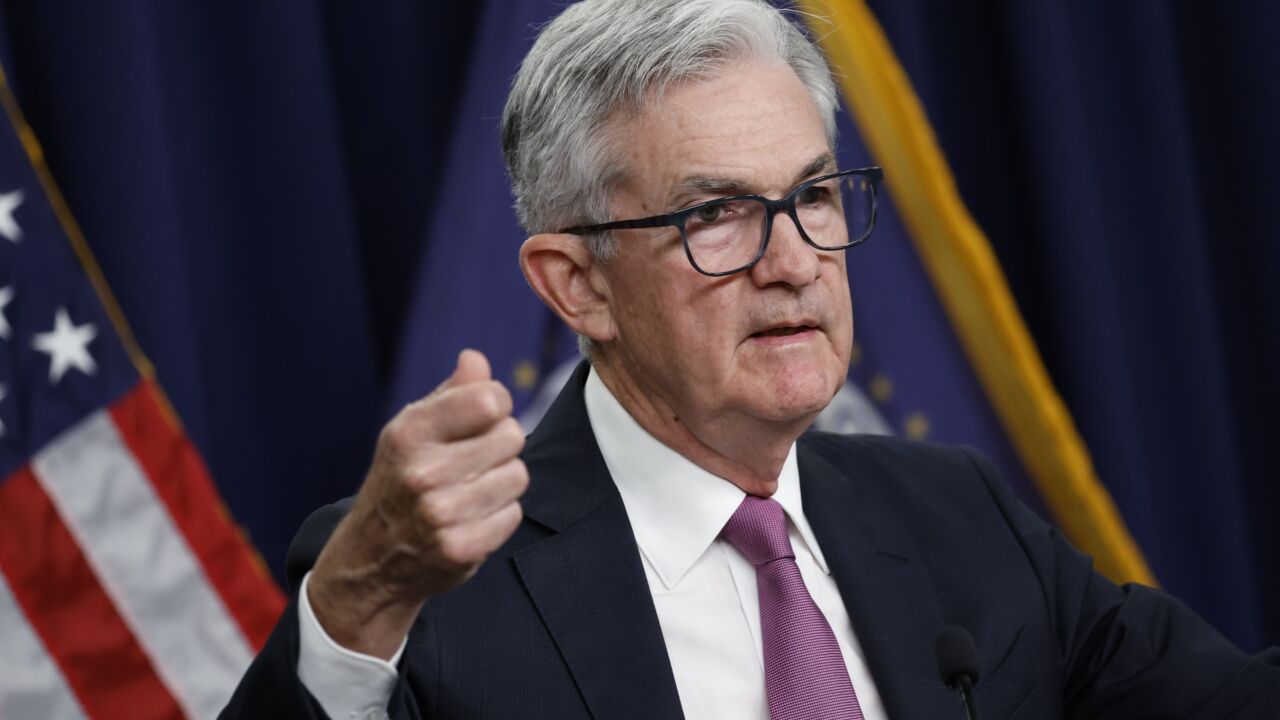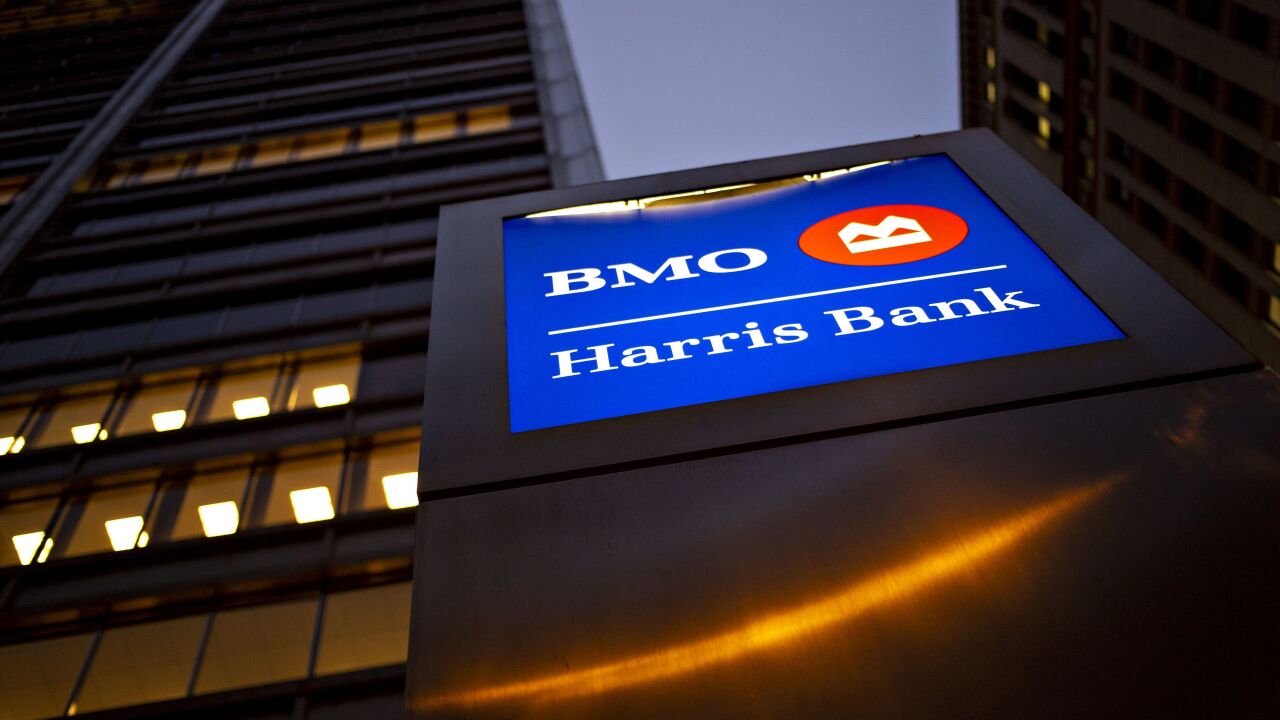-
Lenders are extending credit to corporate suppliers, helping them get paid earlier and keeping goods flowing. But the growth in the sector carries certain risks, too.
September 8 -
Major foreign banks are just as important to the U.S. financial system as large domestic banks, and ought to be regulated as such.
September 7Center for American Progress -
The Ohio bank, which has been releasing more information about its Scope 3 emissions, promised to take steps with customers and suppliers to reduce their collective impact on climate change.
September 1 -
Citigroup's markets operation had hundreds of blind spots, allowing for potentially abusive transactions to go unnoticed in almost 900,000 trades processed every day at the bank's Canary Wharf headquarters for more than two years.
August 19 -
The Federal Reserve looks to be paying closer attention to a potential pinch-point that rankled dollar funding markets almost three years ago and could at some stage become a catalyst for ending early officials' plans to shrink the U.S. central bank's expanded balance sheet.
August 19 -
Wells Fargo bungled the 2020 sale of Occidental Petroleum shares on behalf of an employee trust, leading to millions of dollars in losses when the bank failed to execute trades as planned before the COVID-19 pandemic tanked the stock market, a judge in Texas ruled.
August 19 -
The agency acknowledged that loan performance in the sector has been strong, but cited several reasons to think that might change, including rising interest rates, the effects of inflation and uncertainty about the future of work and commerce.
August 4 -
Fed Chairman Jerome Powell brushed off concerns that rapidly tightening monetary policy could disrupt the financial system. Some economists and policy experts beg to differ, raising concerns about loan defaults or even the collapse of a key institution or counterparty.
July 29 -
Citigroup is requiring some of its least-profitable trading clients to post more collateral and is even dropping some of them to help boost returns in its markets business.
July 29 -
The jury at an upcoming trial can draw an adverse inference about evidence destruction by the Chicago-based bank, a federal judge ruled. The plaintiff is seeking $1.9 billion from the bank, in addition to punitive damages and other funds in a bankruptcy-related case stemming from a Ponzi scheme.
July 25









